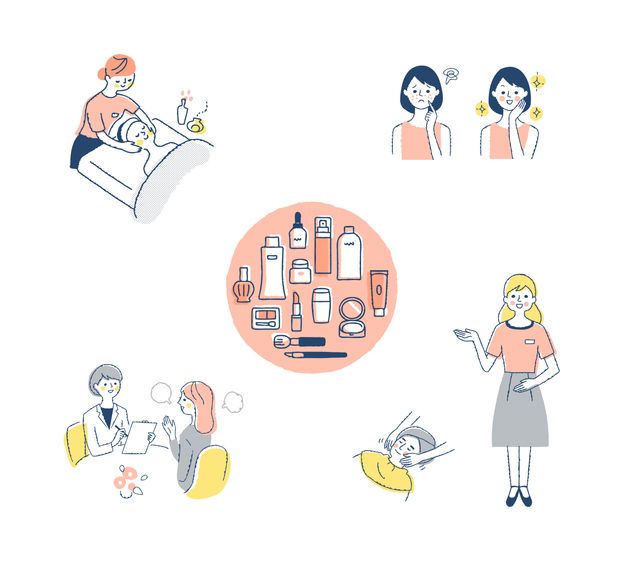

Book Now to Experience
F8 Hair Regrowth Treatment
1 Minute Self-Registration
Date should not be before minimal date
Author: Leila Tan|Updated: 23 July 2024
Everyone wants their hair to be healthy and full of life. But there are many things that can cause hair problems, and hard water is one that isn't as well known. We'll talk about what happens to hair when it's exposed to hard water, with a focus on hair loss right below about the causes, effects, and best ways to avoid and treat hair loss from hard water. Hard water is water that has a lot of minerals in it, most of which are calcium and magnesium ions. When water flows through rocks with lots of minerals, like limestone or chalk, it picks up these minerals and the water gets harder when there are more of these minerals in it. This can be different in different parts of the world.

1
Hard Cold Fact: Causes and Characteristics of Hair Loss Due To Hard Water
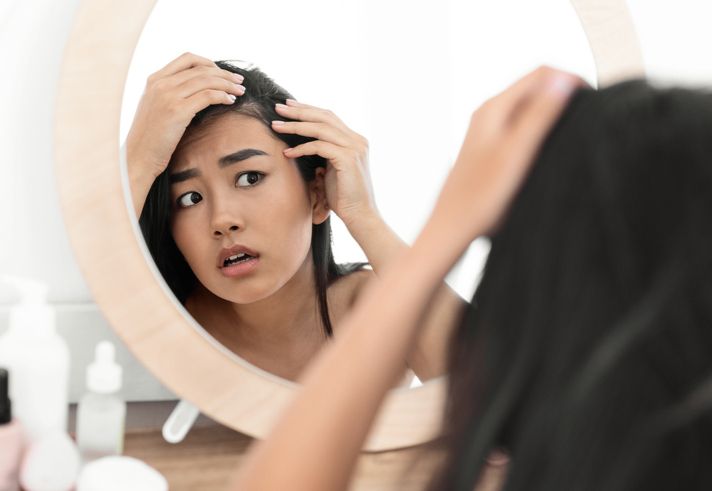
Mineral layers in the water source are the main reason why water is hard. Calcium and magnesium ions are taken up by water when it flows through mineral-rich rocks like limestone or chalk. How hard the water is depends on how much of these minerals are in it. Characteristics of hard water include:
Formation of limescale
Limescale builds up on taps, shower heads, and hair where hard water has been used. This can cause buildup and make cleaning products work less well.
Difficulty lathering
Hard water makes it hard for soaps and shampoos to make a rich foam. The minerals in the water react with the ingredients in these products, which makes them less foamy and less able to clean well.
Dryness and dullness
Minerals in hard water can strip hair of its natural oils, leaving it dry, brittle, and dull. It can also dry out and irritate the scalp.


2
Impact of Hard Water on Hair
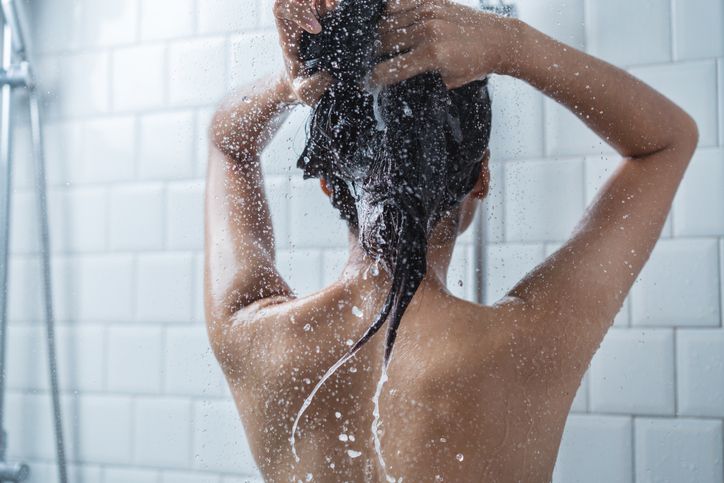
Hard water has a lot of minerals in it, which can be bad for hair growth in a number of ways. Some of these effects are:
Build-up on the scalp
Minerals in hard water can build up on the head, blocking hair follicles and making it hard for hair to grow. This buildup can also irritate the skin and make it flake.
Dryness and dullness
Hair can lose its natural oils when exposed to hard water, leaving it dry, brittle, and dull. This can lead to uncontrollable, frizzy hair that is more likely to break.
Colour fading
When you dye your hair, hard water can make the colour fade faster. Minerals in the water can strip away the colour molecules, making your hair colour look dull and less bright.
Difficulties in styling
Hair can be hard to style when you use hard water. Minerals can coat the hair shaft, which makes it harder for products like serums and style creams to get into the hair and do what they're supposed to do.
Read More

3
Hard Water and Hair Loss
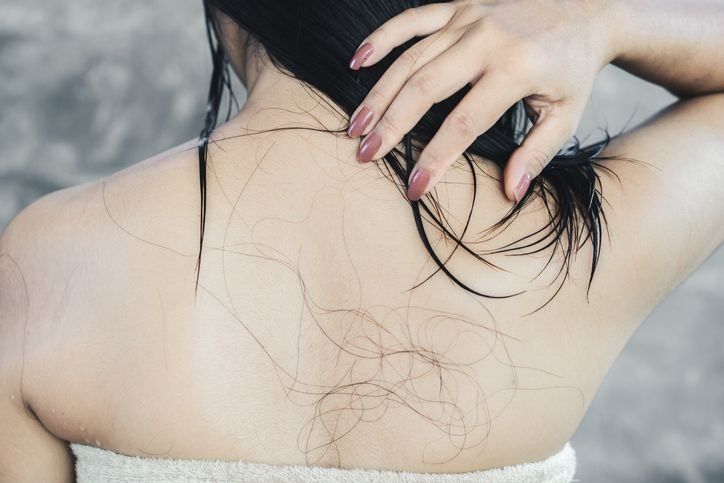
Many people worry about losing their hair, which can be caused by a number of things. Hard water can be one of those things. When hair follicles shrink or get hurt, hair loss happens. This can lead to thinning hair or bald spots.
Even though hard water may not directly cause hair loss, its bad effects on hair health can make hair fall out and break more. Minerals that build up on the head can block the hair follicles, making it hard for healthy new hair to grow. Hard water can also make hair dry and brittle, which makes it more likely to break. This can make hair loss problems even worse.
It's important to remember that hard water can cause hair loss in different ways for different people, based on their hair type, how they take care of their hair in general, and how hard the water is where they live.
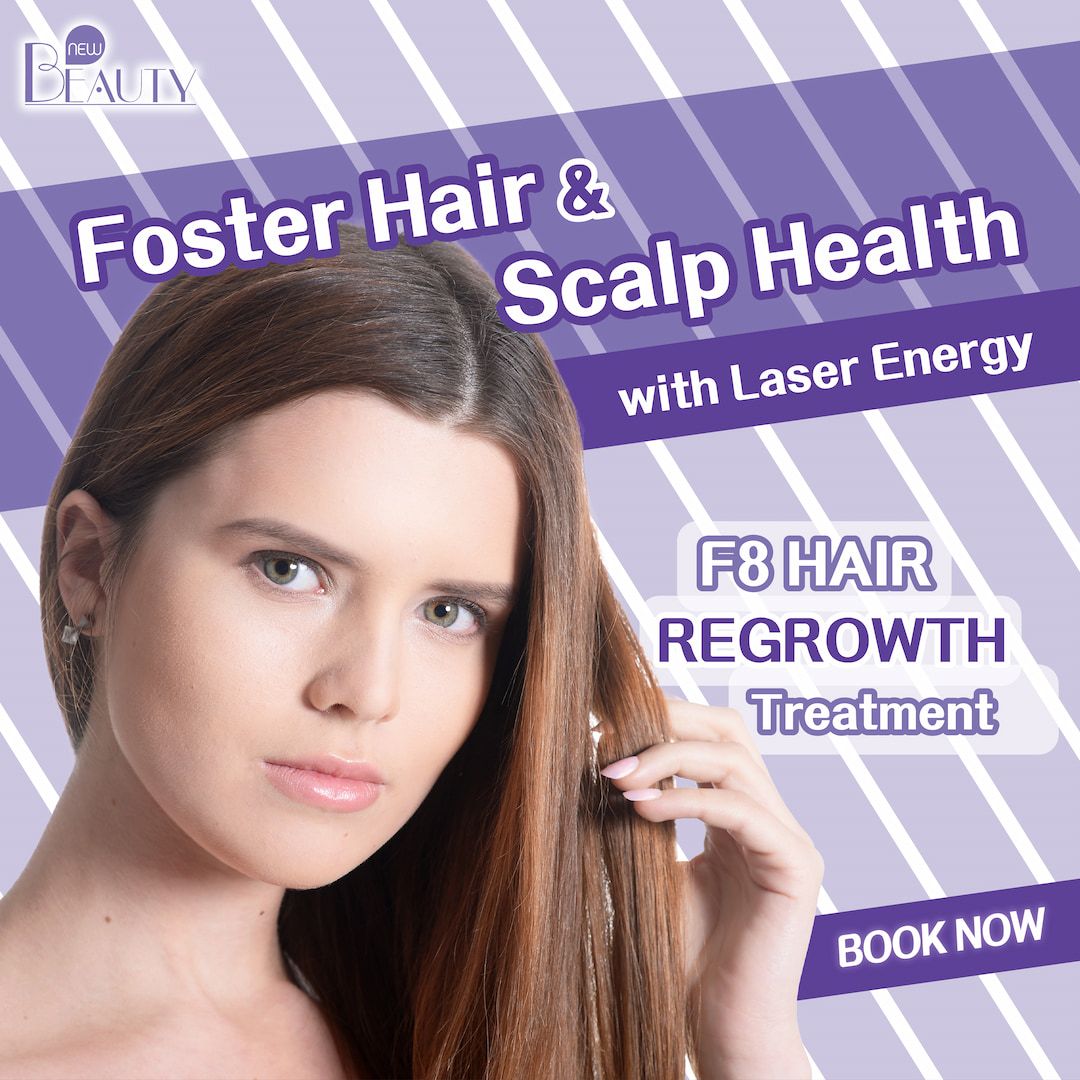

4
Are There Preventions for Hard Water Hair Loss?
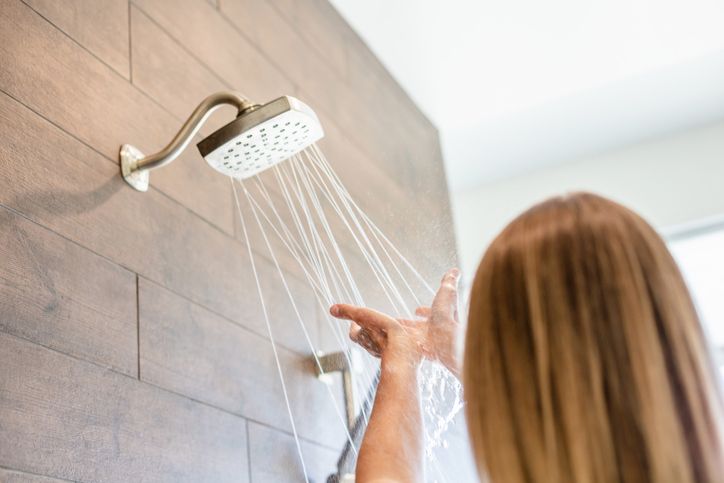
Even though hard water may not directly cause hair loss, it can make hair problems worse, which can cause hair to break and thin. Here are some things you can do to protect your hair from the effects of hard water:
Water softeners
To reduce the amount of minerals in your water, you might want to put a water softener in your home. This can help lessen the damage hard water can do to your hair and skin.
Filter your shower water
Attach a shower filter that is made to get rid of minerals and other things that shouldn't be in the water. This can help keep minerals from building up on your hair and skin.
Deep condition regularly
The natural oils in your hair can be stripped away by hard water, leaving it dry and brittle. To fix this, use deep conditioning products regularly to give your hair back its moisture and nutrients.
Protect your hair
Before swimming in a pool or going somewhere with hard water, you might want to use leave-in conditioners or protective hair serums. These items can make a barrier between your hair and the minerals, which makes the minerals less effective.
Avoid heat styling
Hard water can already damage hair, but too much heat style can make it even worse. Use flat irons and curling irons as little as possible, and always use a heat protectant spray when you do use them.
Stay hydrated and maintain a healthy diet
Drinking a lot of water and eating a well-balanced diet full of vitamins and minerals can help your hair stay healthy overall and lessen the effects of things like hard water.

Book Now to Experience
F8 Hair Regrowth Treatment
1 Minute Self-Registration
Date should not be before minimal date

5
Treatment Options for Hard Water Hair Loss
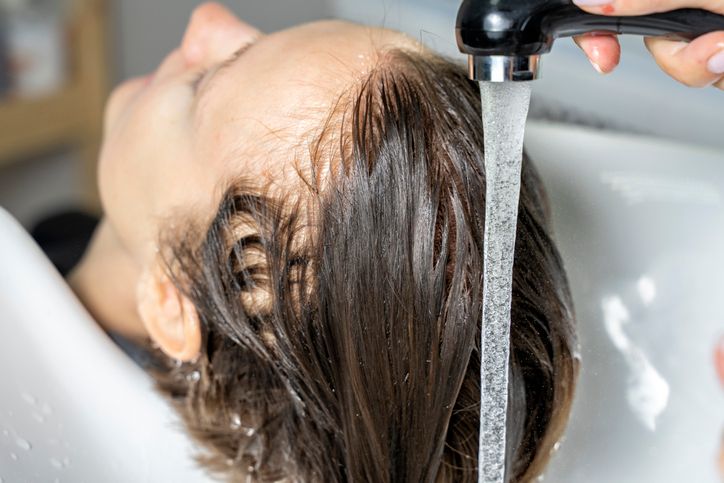
Hard water hair loss can be distressing, but with the right treatments, you can regain healthy and vibrant hair. Here are some treatment options to deal with hard water hair loss:
Chelating Shampoos
Chelating shampoos are made to get rid of more than just mineral buildup. They can also get rid of chlorine and product waste. They clean more deeply and can be used once a month or as needed.
Citric Acid Rinse
A citric acid rinse can help get rid of mineral buildup in the same way that a vinegar rinse can. Mix citric acid powder with water to make a last rinse.


6
Lifestyle and Dietary Considerations

In addition to how you treat your hair on the outside, your habits and diet can also affect its health:
Balanced diet
Make sure you eat a balanced diet with a range of nutrients that your hair needs to grow well. Include foods like fruits, veggies, whole grains, lean meats, fish, nuts, and seeds that are high in vitamins, minerals, and proteins.
Hydration
Drink enough water throughout the day to keep yourself well-hydrated. To keep your hair and skin healthy, you need to stay hydrated.
Limit caffeine and alcohol
Too much caffeine and booze can make your body less hydrated and could hurt the health of your hair. Moderation is important, so try to limit how much of these things you take in.
Omega-3 fatty acids
Include foods like salmon, sardines, flaxseeds, chia seeds, and walnuts that are high in omega-3 fatty acids. These healthy fats are good for the health of your scalp and can help make your hair stronger and more shiny generally.
Biotin-rich foods
Biotin is a B vitamin that keeps hair healthy. Eggs, beans, nuts, and fresh greens are all good sources of biotin that you should eat.
Iron and zinc
Hair loss can be caused by not getting enough iron and zinc. Include zinc-rich foods like oysters, beef, pumpkin seeds, and chickpeas in your diet. Iron-rich foods include lean meats, spinach, and lentils.
Vitamin C
Vitamin C makes it easier to absorb iron from plants. To make sure you get enough vitamin C, eat citrus foods, strawberries, bell peppers, and tomatoes.
Stress management
Too much stress can make hair problems worse. Stress-relieving activities like exercise, meditation, and hobbies can help you feel better generally, which can be good for your hair's health.
Gentle hair care routine
Be careful with your hair, especially when you wash and dry it. Use a light shampoo that is right for your hair type, don't rub your hair too hard with a towel, and let your hair dry naturally as much as possible.
Regular trims
Regularly cut your hair to avoid split ends and breakage, which can be more noticeable in hard water.
Even if you live in a place with hard water, you can keep your hair healthy by living a healthy lifestyle, eating a balanced diet, and taking gentle care of your hair.

7
Some of the Myths You Might Want To Know Before
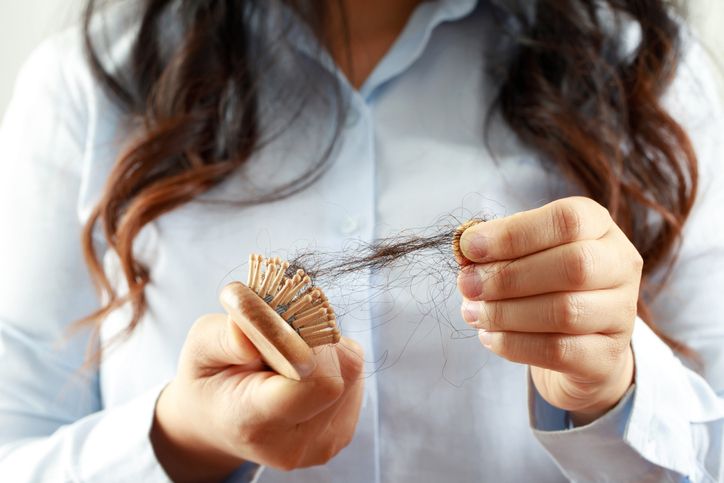
It is undoubtedly that many of us dream of having hair that is healthy, shiny, and full of life. But many things can affect the health of our hair, and one of the most common worries that is sadly unchangeable is about the water we use. Since we would want to tackle this issue correctly, here’s a few myths about hard water hair loss before we put the blame on water.
Myth 1 - Hard water directly causes hair loss
One common myth is that washing your hair in hard water will cause you to lose hair. Even though hard water can affect the health of our hair in some ways, it is not the main reason of hair loss. Hair loss is a complicated issue that can be caused by many things, such as genes, changes in hormones, a lack of certain nutrients, and underlying health problems. Hard water can damage hair, but it doesn't cause hair to fall out on its own.
When the hair cells go into a resting phase and stop making new hair strands, this is called hair loss. This is called telogen effluvium, and it can be caused by stress, changes in hormones, certain medicines, or a lack of nutrients. Hard water can cause hair to break, become dry, and irritate the skin, all of which can make hair loss worse, but it is not the only cause.
Myth 2 - Hard water makes hair dry and brittle
People also often think that dry, brittle hair is caused by hard water. Hard water can make hair feel rough and make it hard to style, but the amount of dryness and brittleness that people experience depends on the hardness of their water. How you take care of your hair and how healthy your hair is overall have a lot to do with how hard water affects your hair.
To deal with the effects of hard water, it is important to take care of your hair the right way. Using a clarifying shampoo or a chelating shampoo made for hard water can help get rid of mineral buildup and bring the hair back to its natural balance. Hard water can also make hair dry and brittle, but using conditioners and leave-in products that add moisture and hydration can help.
Myth 3 - Hard water leads to scalp conditions
People often think that dandruff or itching on the head are caused by or made worse by hard water. Even though hard water may cause scalp problems, it is important to tell the difference between the effects of hard water and other reasons.
For example, dandruff is usually caused by a type of fungus called Malassezia, which can be affected by things like skin conditions, changes in hormones, and how the immune system responds. Even though hard water can affect the health and wetness balance of the scalp, it is not the only cause of dandruff or other scalp problems.
Even though hard water can damage hair in some ways, not all of the myths about hard water hair loss are true. Hard water doesn't directly cause hair loss, but it can hurt hair and make it worse if you're already losing hair. By knowing how hard water really affects our hair and taking the right steps, like using the right hair care products, thinking about ways to soften the water, and eating a balanced diet, we can lessen the effects of hard water on our hair and improve its general health. Along with the right treatments and being consistent with it would be beneficial to regain those healthy and vibrant hairs back, a treatment such as F8 Hair Regrowth Treatment by New Beauty can help you to achieve that!


8
Grow Tougher Than Before with New Beauty’s F8 Hair Regrowth Treatment

F8 Hair Regrowth Treatment is a treatment that doesn't hurt the skin or hair and keeps them healthy. Low-laser energy and hair growth serum are swept over the head to wake up dormant hair follicles and strengthen the hair papilla inside. The energy and serum also fix the capillaries and boosts their microcirculation, which helps the hair cells get the nutrients they need to stay healthy and the infusion of hair growth serum can deep-cleanse the scalp to reduce sebum and unclog hair follicles to improve the health of the scalp. After the process, you will notice that your hair will be thicker and better.

Book Now to Experience
F8 Hair Regrowth Treatment
1 Minute Self-Registration
Date should not be before minimal date

9
Conclusion
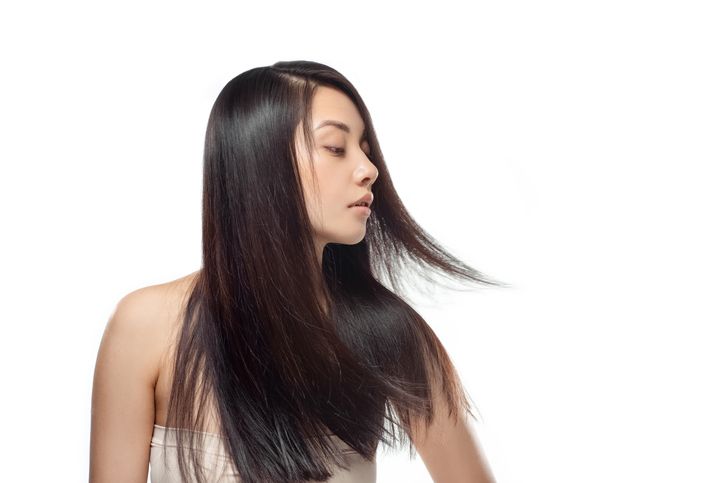
Hard water hair loss can be distressing, but with the right treatments, you can regain healthy and vibrant hair. From clarifying shampoos to natural remedies and water softeners, there are multiple avenues to explore. Remember to adopt preventive measures, such as installing a water softener or using a shower filter, to minimise the impact of hard water on your hair. Be consistent with your chosen treatments and give your hair time to recover. So, get your treatment now with New Beauty's F8 Hair Regrowth Treatment, and with patience and care, you can overcome hard water hair loss and enjoy the beauty of revitalised hair!
FAQ
1. How long does it take to see results from hard water hair loss treatments?
How long it takes to see effects depends on how bad the damage is. If you keep using the right treatments, you might start to feel better in a few weeks or a couple of months.
2. Can hard water hair loss be reversed completely?
Even though it's hard to stop hair loss totally, taking preventative steps and using effective treatments can stop you from losing more hair and make your hair healthier overall
3. Are there any side effects of using clarifying shampoos frequently?
When you use clarifying shampoos too often, they can strip your hair of its natural oils, leaving it dry. Use clarifying soaps in moderation and follow up with deep conditioning treatments.
4. Can I prevent hard water hair loss by using bottled water for washing my hair?
Using bottled water can be a temporary answer when travelling or in an emergency, but it may not be practical for everyday use. Installing a water softener or treating the water in the right way is more environmentally friendly.
5. How often should I use a vinegar rinse for hard water hair?
You can use a vinegar rinse after washing your hair once or twice a week. Change the frequency based on what your hair needs and how well it can handle it.

Book Now to Experience
F8 Hair Regrowth Treatment
1 Minute Self-Registration
Date should not be before minimal date
Recommended Articles
COPYRIGHT© NEW BEAUTY MANAGEMENT LIMITED 2025. ALL RIGHT RESERVED.


